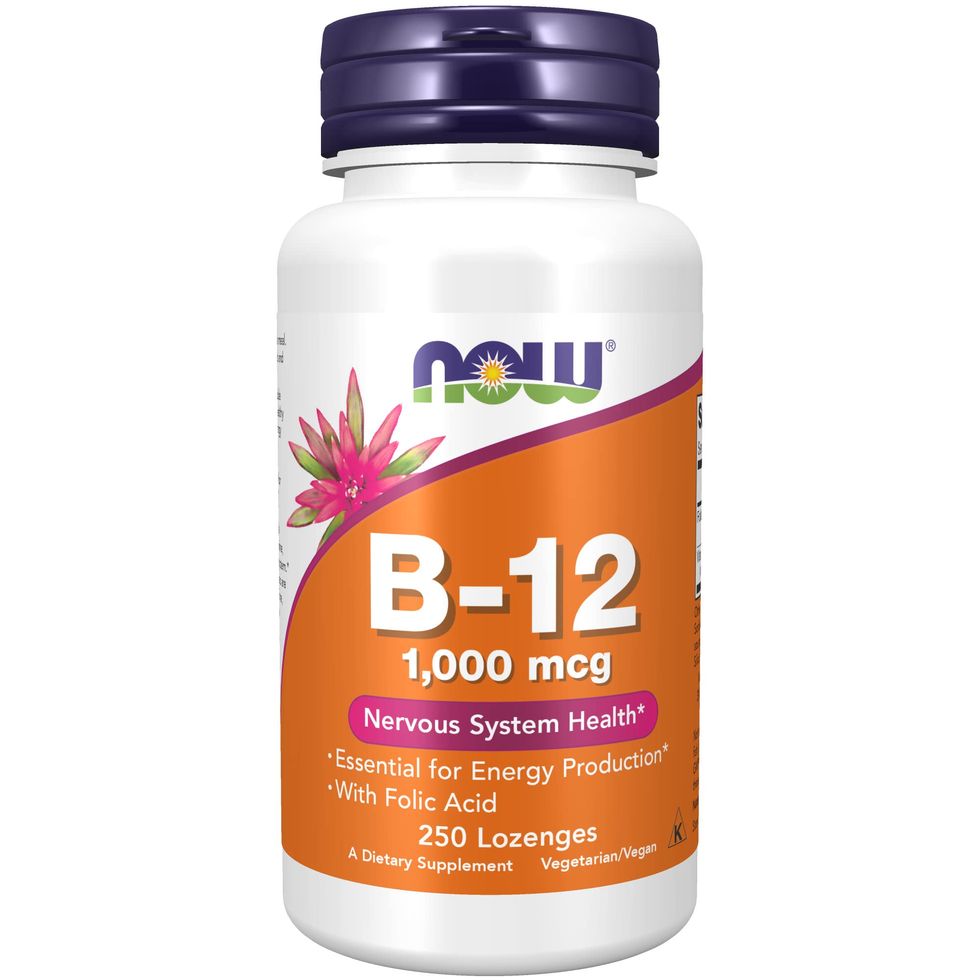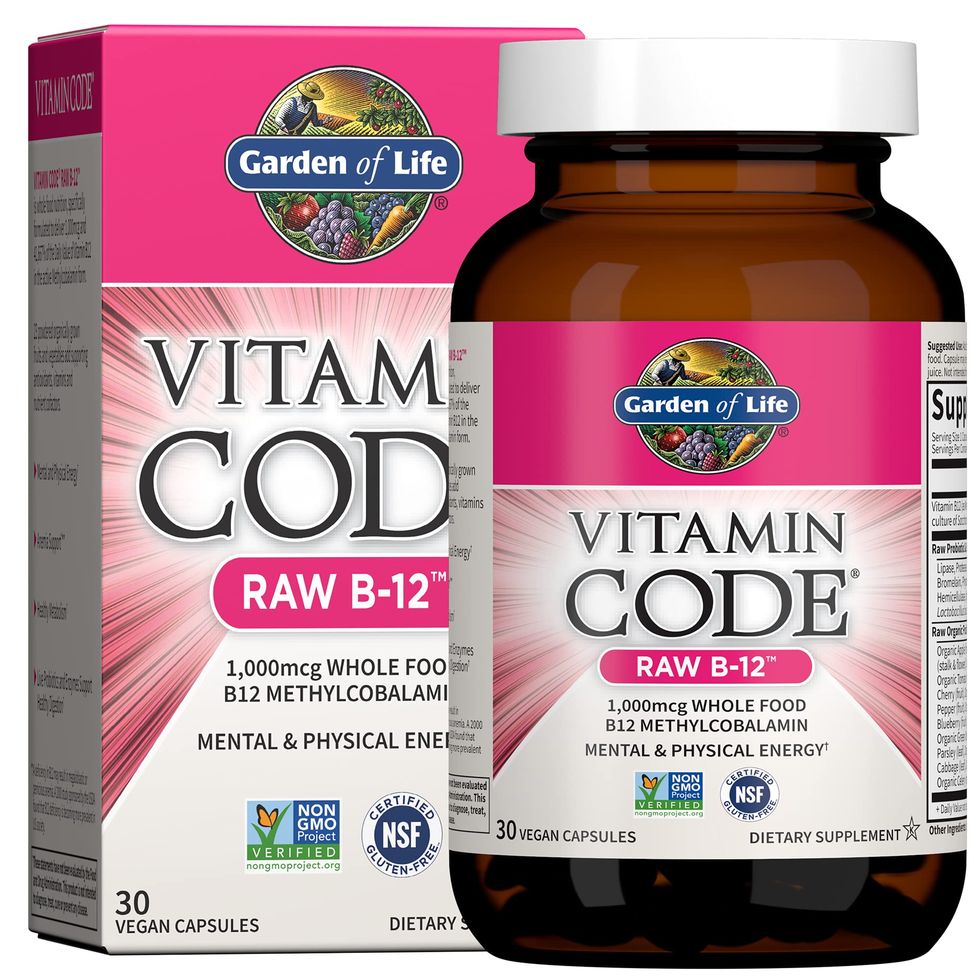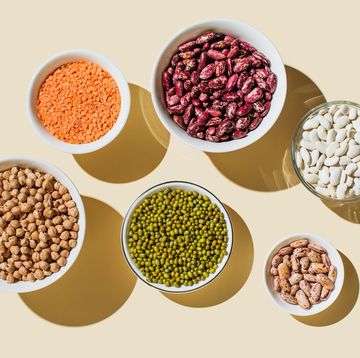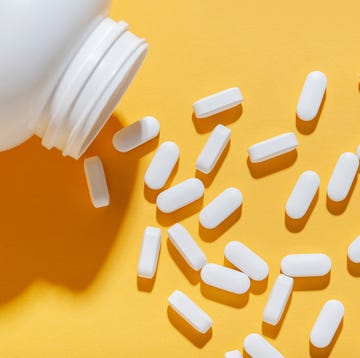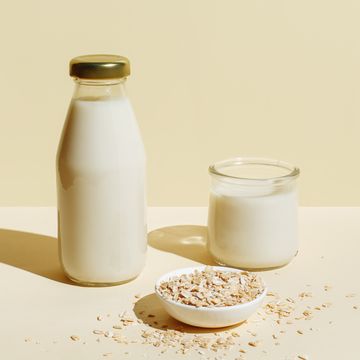Plant-forward diets are becoming increasingly popular, thanks to their numerous health benefits, but whether you choose to go flexitarian, vegetarian or completely vegan, there is one potential complication you need to watch out for: a vitamin B12 deficiency. B12 is crucial for many important functions, and, with a few exceptions, the only way to get it is through animal-based foods or B12 supplements.
“Vitamin B12 is an essential water-soluble vitamin that plays a critical role in helping the brain and nervous system function,” says Ashley Kitchens, RDN, of Plant Centered Nutrition. “It supports the formation of red blood cells and helps maintain the myelin sheath, the protective covering for your nerves.” It also takes part in the production of DNA, helps prevent birth defects during pregnancy, adds Amy Shapiro, RD, CDN, of Real Nutrition in New York.
B12 is involved in bone metabolism and mineralization, so it is particularly important for women who are at risk for bone conditions, such as osteoporosis.
Your body absorbs B12 from food in a multistep process: First, hydrochloric acid in the stomach separates the B12 from the protein it’s initially attached to; then, the B12 combines with intrinsic factor, a protein created in the stomach and the body absorbs them together. Most Americans get plenty of vitamin B12 through the food they eat, but there are some notable exceptions (older Americans are particularly at risk, because they have less intrinsic factor, with some sources saying as many as 43% may be deficient in the vitamin).
One of the superpowers of vitamin B12 is that it is the only water-soluble vitamin that can be stored in the human body, Kitchens points out, and it can remain stored in the liver for several years. This is why you may not notice any symptoms of a deficiency for the first few years of a vegan or vegetarian diet, but then may start to experience fatigue, weakness and other signs once that stash is depleted.
Causes
Eating a diet devoid of any animal products, fortified plant-based products, or supplements is one of the ways you can deplete your body of B12, but there are other reasons your body may not get enough of the nutrient.
Symptoms
“A B12 deficiency can cause physical and neurological symptoms, and research is also growing to support that it can also cause psychological issues as well,” says Shapiro.
The list of potential symptoms includes:
- Fatigue
- Muscle weakness
- Nausea
- Weight loss
- Irritability
- Depression
- Trouble walking
- Increased heart rate
- Numbing or tingling in hands and feet
- Sore mouth or tongue
How do you get tested for a B12 deficiency?
If your health care provider suspects you have a vitamin deficiency, they will do routine blood testing to check for the amount of the vitamin in your blood. A vitamin B12 level of less than 200 pg/mL is considered deficient.
Treatment
First, have your health care provider run blood tests to see if you truly have a B12 deficiency. If you do, the only way to treat it is to consume more B12, either through food, supplements or intramuscular injections.
Supplements are available in many different formations, including tablets, lozenges, gummies and liquids. While the natural form of B12 found in food is called methylcobalamin, the synthetic type found in most supplements is called cyanocobalamin.
“I usually recommend a solo B12 supplement, because you can easily monitor how much you are taking and you can stop taking it when you have corrected for your deficiency,” says Shapiro.
Other FAQs
When is the best time to take B12?
Shapiro adds that it is best to take your B12 vitamin in the morning: “It will give you energy, and therefore this will help to prevent sleep disruption,” Shapiro says.
“I typically recommend a liquid or sublingual vitamin B12 supplement with at least 50 mcg per day,” says Kitchens. “As you age, your ability to absorb vitamin B12 may decline so I often recommend up to 1,000 mcg per day.”
The Good Housekeeping Institute tested more than 30 brands of B12 supplements, and chose Nature made B12 1000mcg as the best overall option, and Garden of Life Vitamin Code Raw B12 as the best vegan supplement. Most supplements have far more than the 2.4 mcg recommended for adults, but experts say there is no harmful upper limit of the vitamin—any excess that your body doesn’t absorb will just come out in your urine.
What is the proper dosage?
Adults need about 2.4 micrograms of B12 a day (that much can be found in one portion of salmon, canned tuna or ground beef), with pregnant and nursing women needing slightly more (2.6 and 2.8 mcg, respectively). Older adults should check with their doctor to see if they need to supplement at a higher dose.
What are the best food sources of B12?
The most surefire way to get sufficient B12 from food is by eating animal-based products including, meat, poultry, seafood, eggs, and dairy. “Many animal foods contain adequate amounts of vitamin B12 because they acquire this bacteria throughout their lives,” Kitchens explains, adding that there is often B12 added to the feed that livestock consume.
Some of the top B12 bangs for your buck include:
- Beef liver (3 oz, 70.7 mcg)
- Cooked clams (3 oz, 17 mcg)
- Cooked oysters (3 oz, 14.9 mcg)
- Salmon (3 oz, 2.6 mcg)
- Ground beef (3 oz, 2.4 mcg)
- Milk, 2% (1 cup, 1.3 mcg)
- Fat-free plain yogurt (6 oz, 1mcg)
- Egg (1 large, 0.5 mcg)
- Turkey breast (3 oz, 0.3 mcg)
For people who don’t eat animal products, there are ways to get B12 through your food, though you have to carefully read labels and/or eat copious amounts to get your daily fill. These include:
- Fortified nutritional yeast (1/4 cup, around 15 mcg)
- Fortified soy milk (1 cup, 3mcg)
- Fortified oat milk (1 cup, 1.2 mcg)|
- Fortified breakfast cereals (1 serving, 0.6 mcg)
- Tempeh (1/2 cup, 0.1 mcg)

Marisa Cohen is an editor in the Hearst Lifestyle Group’s Health Newsroom, who has covered health, nutrition, parenting and culture for dozens of magazines and websites over the past two decades.
Melissa Prest, R.D., D.C.N. is a registered dietitian nutritionist and holds a Doctor of Clinical Nutrition degree from Rutgers University. Melissa owns Kidney Nutrition Specialists, a nutrition practice dedicated to helping individuals living with chronic kidney disease, and is the Foundation Dietitian for the National Kidney Foundation of Illinois where she focuses on disease prevention, health education, and nutrition consultation.


